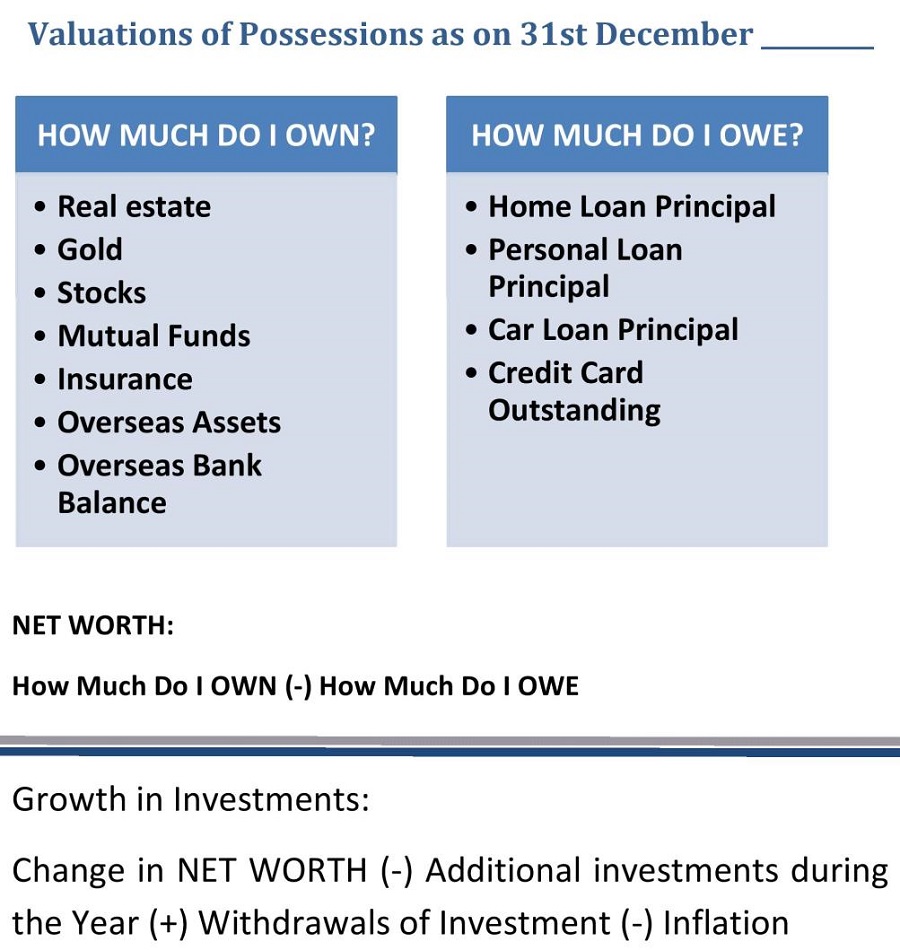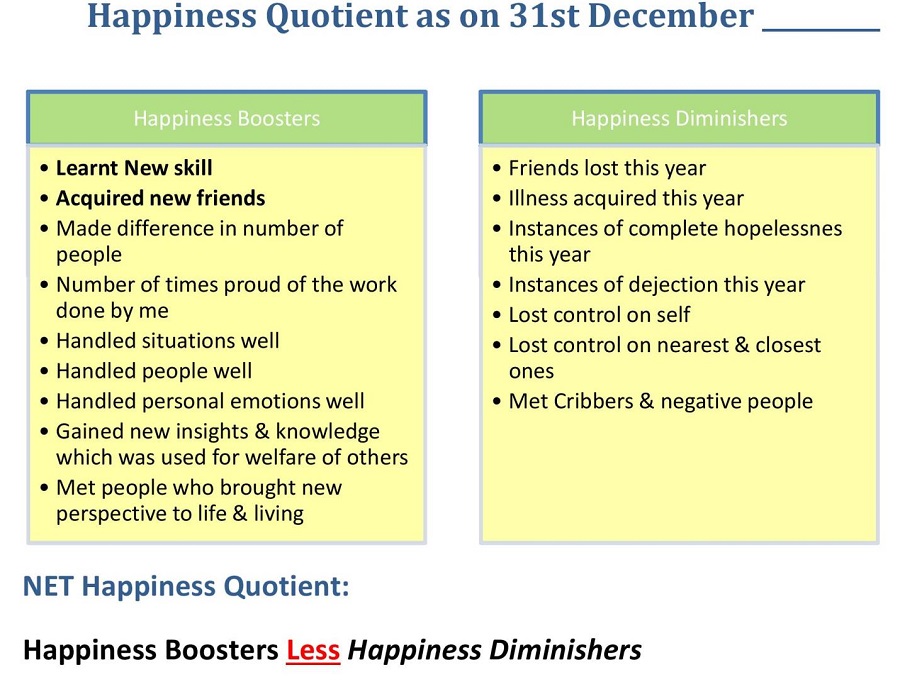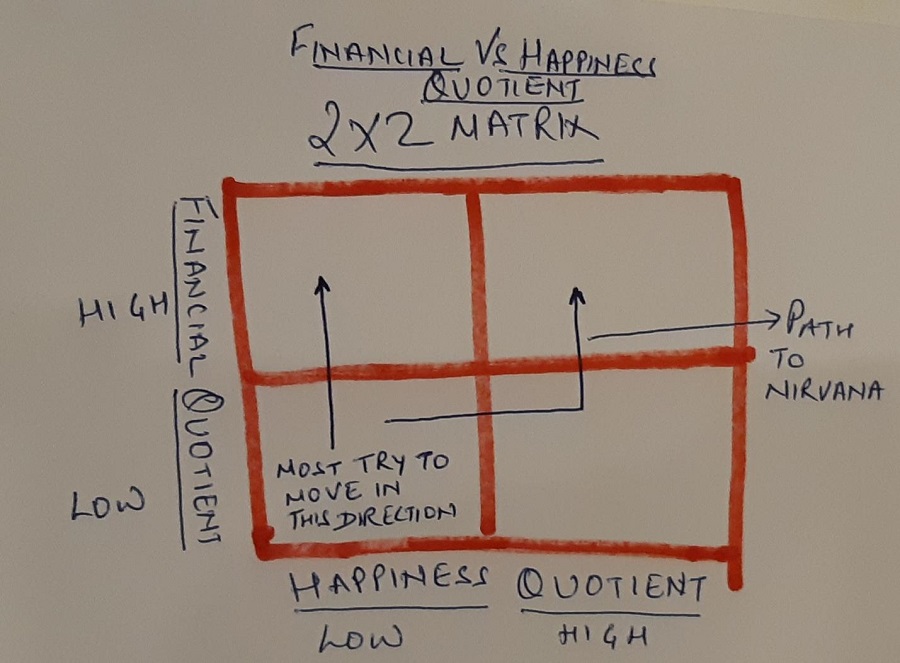By
Siddhartha Rastogi
Many years ago, humans were of the belief that the Earth was flat. This led to the notion that movement means progress. One thought, if you keep moving, you are advancing in life. In the 6th century BC, Pythagoras, the Greek philosopher, alluded to the idea of a spherical or round shaped earth. Subsequently multiple researches and scientific quests discovered that the Earth was round.
Unfortunately the human memory remained stuck on the earlier notion which accentuated the belief “More work means more Progress”.
In my last note I had written about #ROST or Return on Stress Taken. More often than not, the stress which comes from increased work pressure leads to diminishing productivity and incremental downtime.
However every one should have the liberty and freedom to evaluate him/herself without imposing judgement or bias.
We are ending 2018 and this is my last note for the year, which will help you ponder and reflect back what you did and how you fared during the year.
Every human being is simply chasing 2 motives:
- Financial Quotient
- Happiness Quotient
The rest are all adjectives or perhaps notions, including money, wealth, currency, fame, contentment, spirituality, giving back, helping, power, wisdom, success, promotion, emotion, stress; everything falling under one category or another.
To evaluate the first one is rather simple. Most financially astute professionals and investors must be evaluating it on a yearly basis. But I am sharing my thoughts for those who may not have initiated the assessment as yet. The table below reflects your financial ownership.
This part, a finite number will get derived easily and will indicate whether you are progressing financially or not.
The challenge is to assess the non financial part. Assessment of Happiness quotient. The chart below may help you with the Happiness Appraisal. The list is not exhaustive and may vary from person to person.
You be the judge of your own happiness.
What Happiness essentially means
Happiness simply means a state of being, which you want to be in, not for minutes, not for days, not for years, but forever.
However certain thoughts, certain beliefs, certain acts, certain habits, certain events, certain people derail that happiness. Few of which have been captured above in diminishers. For some people, the period of unhappiness lasts for few hours but for a few, it lasts for life.
Fortunately, the universe has given us the most powerful tool, to live happily. The tool to choose, the options, the alternatives.
These choices determine our happiness quotient and in turn our quality of life.
To conclude this exercise, plot the outcome of the above two charts in a 2X2 matrix and see where you want to be and act accordingly.
Siddhartha Rastogi says,
“High Happiness Quotient can supersede any financial race, while most financial sprinters lose the race of life and happiness.”
Siddhartha Rastogi
Siddhartha was born to a learned middle class educated family in Semi Urban India. His father was an extremely honest man who because of his honesty had to pay the price in corporate world. Mother is a determined woman who ensured that children are being well taken care off. After a few years of birth, doctors called Siddhartha, a slow child having flat foot. He would fall more than he could walk. Determined mother ensured all therapies for her son to come out strong to fight the world. Siddhartha joined swimming when he was in 6th standard. Seeing other children of his class, he jumped in 10 feet deep pool and learnt swimming on his own, the very same day.
From that day there was no looking back. He topped his city in 12th and went to score highest in his B school exams. During his profession as banker, he became youngest branch manager of a MNC bank managing their biggest wealth branch in the country. There he found love of his life and got married. His love of his life emerged in the form of his daughter who completely changed him for good.
Siddhartha Rastogi is Director for a boutique Investment bank in India.
Siddhartha is a forward looking thinker & writer who has written a book on decision making. 8 Simple steps to effective decision making.
He writes on various social and current issues via his blog and can also be found on twitter.






No Comments Yet!
You can be first to comment this post!